Ministry of Economy and Finance secretary of state Vongsey Vissoth called on relevant officials and working group members to expedite the completion of the draft concept note on “Digital Government Policy” and to design it in consonance with the Digital Economy Policy.
He said this at a meeting held at the Ministry of Posts and Telecommunications on July 22, chaired by telecoms minister Chea Vandeth.
A Digital Government is a crucial component of the Digital Economy, he said, adding: “The development of the Digital Economy would need to go alongside the setup of a unified governance system through which all ministries and institutions fulfill their duties electronically.”
All input should be consistent between the draft Digital Government policy and draft Digital Economy policy, he said.
Vandeth defined Digital Government as the modernization of the government management system through digital technologies that streamline public administrative duties; decision-making processes; and public-service provisions to the general public, private sector and relevant institutions in an efficient, transparent, accountable and inclusive manner.
He said: “Development of the Digital Government is a sine qua non for Cambodia, both in the present and future, to prepare it to engage the Digital Economy, the fourth industrial revolution and globalization through the use of digital technology.”
The first draft of Cambodia E-Government Strategic Plan 2018-2023 was drafted by the telecoms ministry in line with the Cambodia ICT Masterplan 2020 and Telecom-ICT Policy 2020.
The plan aims to encourage a shift to a digital economy and promote the use of digital technologies in the public sector to boost efficiency, fairness, transparency, and convenience for the people.
Last week, the Ministry of Commerce officially approved a strategy to implement the country’s E-Commerce Law to pave the way for the promotion of a digital business model in the line with the government’s goal of leapfrogging into the fourth industrial revolution, or digital economy.
The government passed the E-Commerce Law in November as a response to the rapid development of e-commerce and online shopping.
On June 15, the government launched an integrated e-business registration platform that incorporated six ministries and state-run institutions to make the process of registering and opening a business in Cambodia easier and more efficient.
The platform is also known as the Single Portal and can be accessed at registrationservices.gov.kh.
The number of active mobile phone subscriptions across the Kingdom’s six operators was 20,481,051 as of the end of May, inching down 0.08 percent from the end of May last year, data from the Telecommunication Regulator of Cambodia (TRC) show.
At the same time, the number of landlines and fixed-line subscriptions numbered just 52,480 as of the end of May, slipping 21.62 percent from the end of May last year.
The number of mobile internet subscriptions across Cambodia’s seven providers also recorded a 2.36 percent drop to 14,863,435, whereas fixed broadband internet subscriptions across the Kingdom’s 37 providers logged a 33.07 percent climb to 249,132.
Meanwhile, the number of Facebook users in the Kingdom reached 10.95 million, TRC data showed.
Provide complete transparency and confidence to your citizens with eGovt Solutions, we can help you embrace the development of a digital government and maximize your efficiency. Find out how we can help!
The Phnom Penh Post, May Kunmakara, Published on July 29, 2020

